General
UNESCO Documentary Heritage Seminar Calls for Preservation of Africa’s Oral Knowledge
Published
3 years agoon
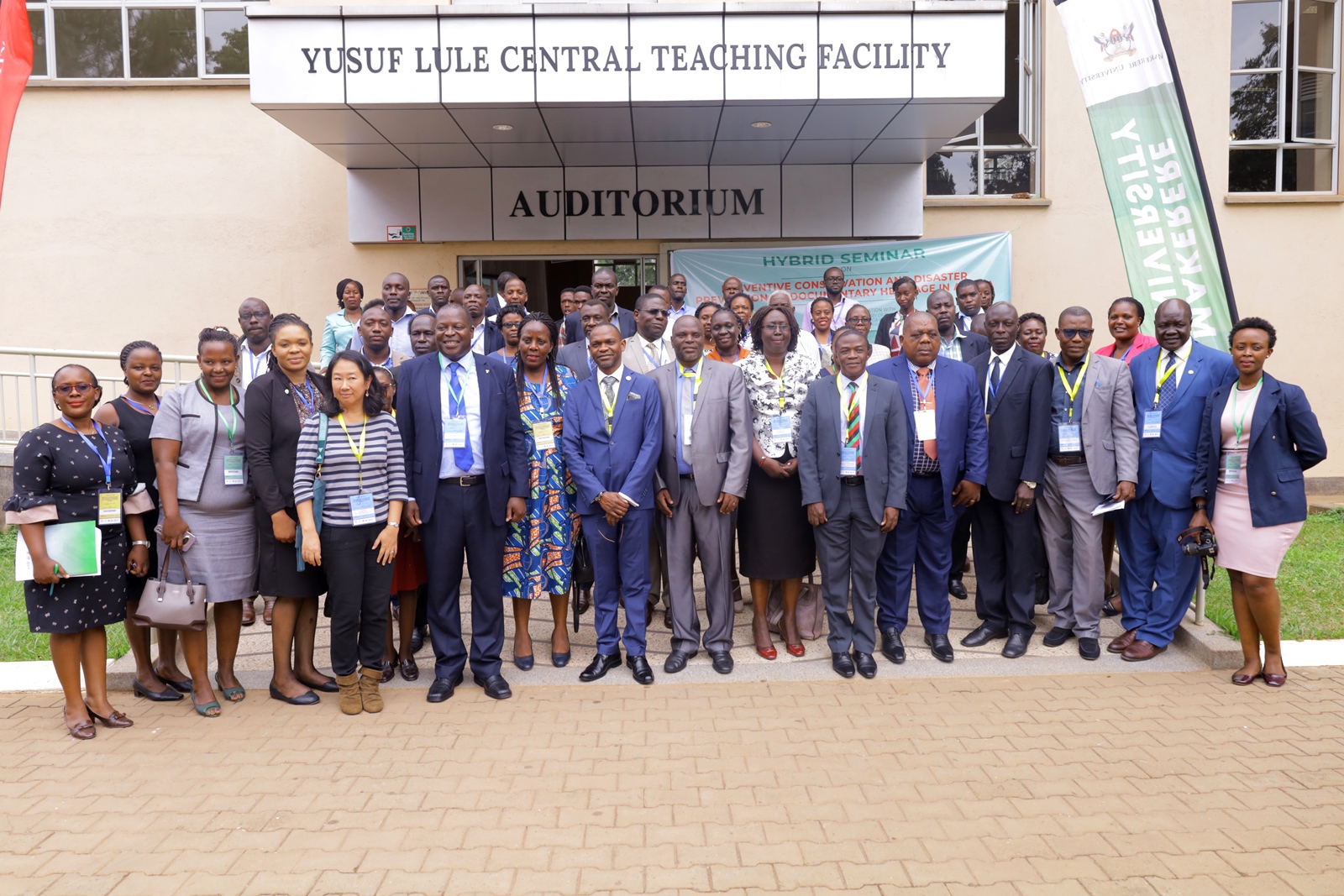
Makerere University in collaboration with the Sub-Committee on Education and Research Working Group Africa (SCEaR-WGA) of UNESCO Memory of the World and Uganda National Commission for UNESCO (UNATCOM) organized hybrid a seminar on “Preventive Conservation and Disaster Reduction of Documentary Heritage in Africa”. Held from 4th to 5th July 2023 in the Yusuf Lule Auditorium, the objective of the Seminar was to provide an input to the guide on Preventive Conservation and Disaster Prevention of Documentary Heritage in Africa being developed by SCEaR-WGA.
Officially opening the seminar, the Deputy Vice Chancellor (Academic Affairs), Prof. Umar Kakumba appreciated SCEaR-WGA and UNATCOM for their invaluable support in organising and hosting the seminar. He therefore congratulated the Convener Prof. Elisam Magara, the Department of Records and Archives Management, the East African School of Library and Information Sciences (EASLIS) and the College of Computing and Information Sciences (CoCIS) on championing the initiative at Makerere University.
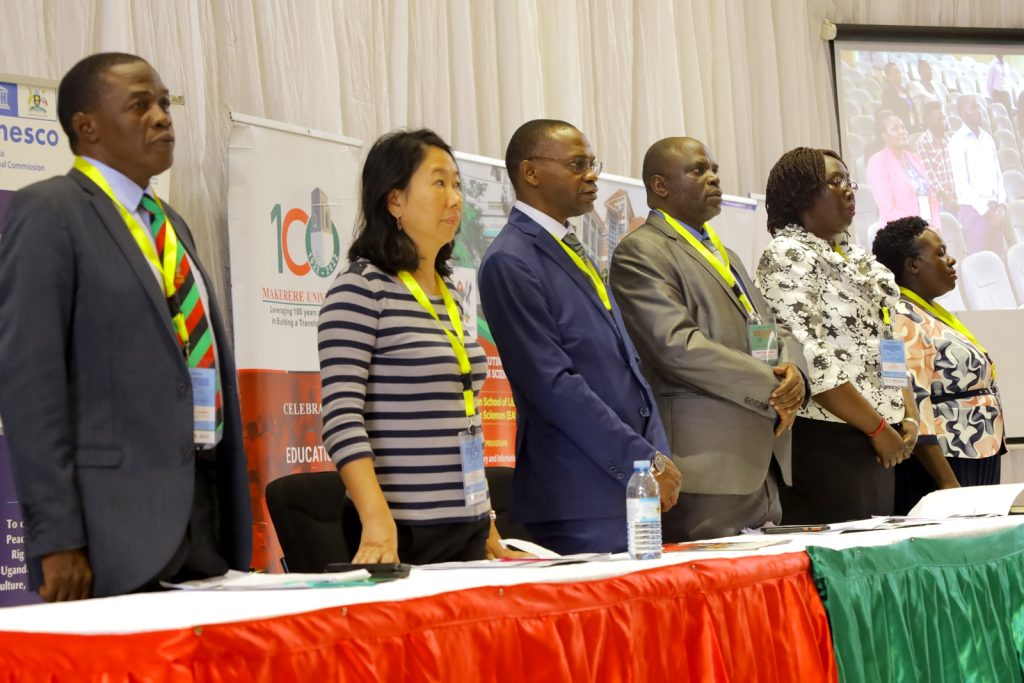
“The strength of any nation is measured largely by the strength, character and proficiency of its people. Beneath the people is the knowledge – the human side of enterprise. Knowledge does not emerge from space, it must be generated, managed and preserved” noted Prof. Kakumba. This, he added, is particularly important in today’s knowledge economy for the sake of providing solid points of reference for future generations.
“Makerere University is happy to associate with UNESCO’s Memory of the World Programme and many partners that seek to foster this document and knowledge preservation” he added.
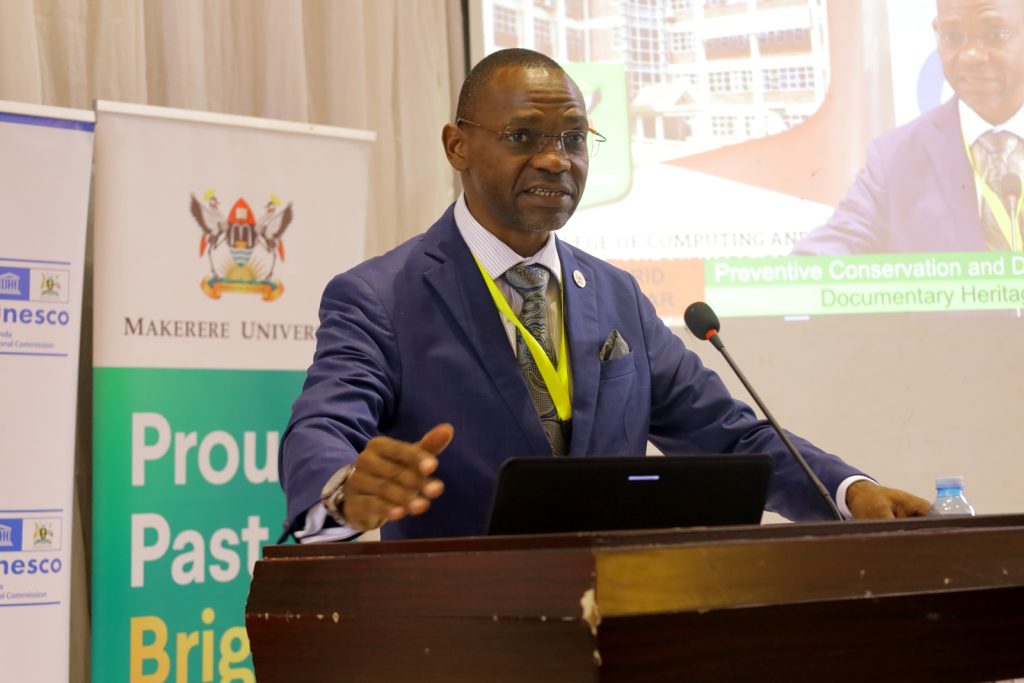
In line with documentation and preservation efforts, Prof. Kakumba shared that the University Leadership is in the final stages of setting up the Muteesa II Memorial Museum and upon completion the reconstructed Main Administration Building would allocate space for a Museum.
Addressing participants, Ms. Misako Ito, the Regional Adviser for Communication and Information in Africa, UNESCO thanked Makerere University and Prof. Elisam Magara in particular for organising the event. She noted that Japan as a country that is prone to natural disasters has in response come up with very well-developed disaster prevention strategies.
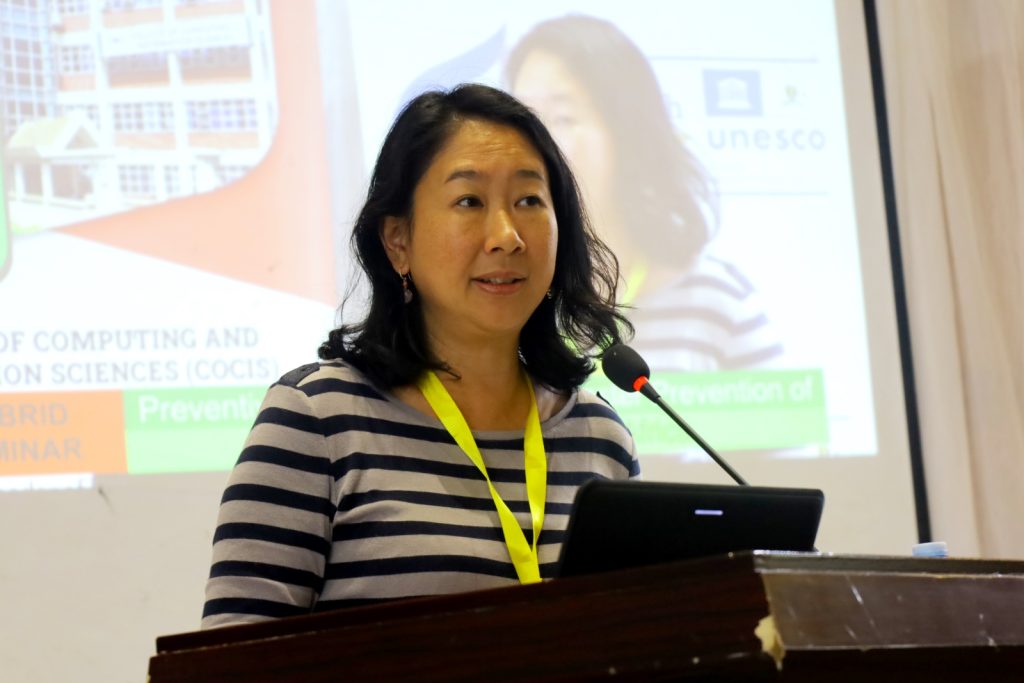
“For last four years, Japan has funded this project to promote Preventive Conservation and Disaster Prevention of Documentary Heritage in Africa” she added relatedly.
Ms. Misako informed participants that UNESCO had on 1st July 2023 launched a new call for nominations for the Memory of the World International Register and encouraged the Uganda National Memory of the World Committee to submit entries. She noted that because only 5% of documentary heritage entries come from Africa despite its rich history, UNESCO has held workshops in Madagascar and Kenya to raise awareness of the initiative.
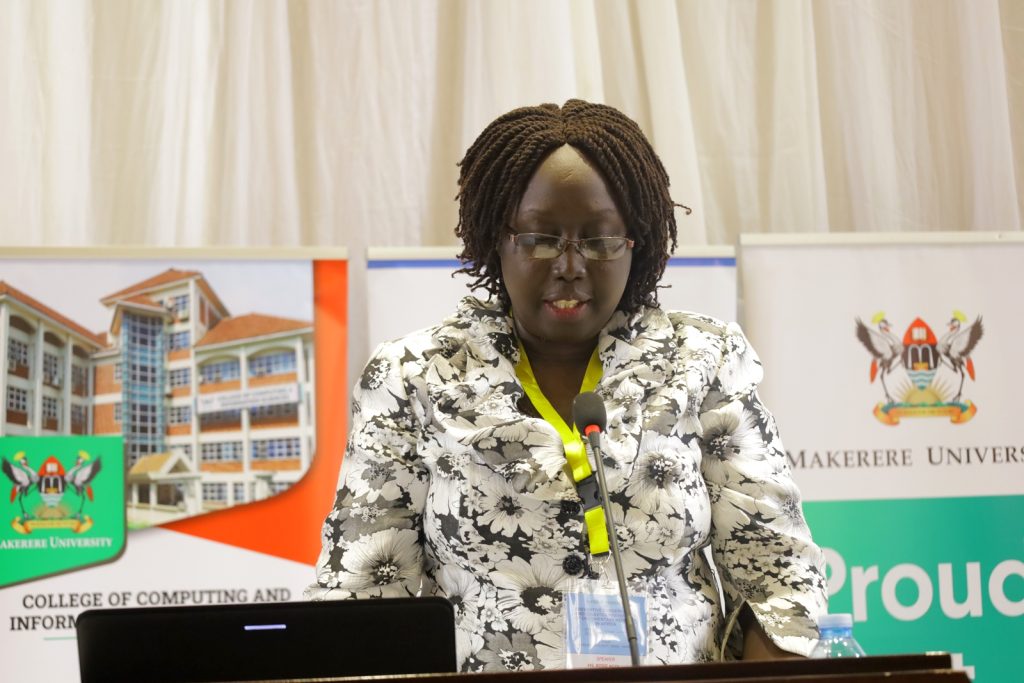
Ms. Misako said the latest call has added an important gender component to prominently reflect women in archives and historical narratives. She equally encouraged participants from other African countries to consider preserving the documentary heritage of revolutionary movements, which have had significant impact on the continent’s political leadership.
As Convener, Prof. Elisam Magara introduced members of the SCEaR-WGA namely: the Group Coordinator, Prof. Papa Momar Diop, Associate Professor at the University Gaston Berger, Senegal; Ms. Esther Olembe, Director of the National Archives of Cameroon; Dr. Lydia Waithira Muthuma, Senior Lecturer, Technical University of Kenya; Mr. Apolinaitre Tokanji Gbaguidi, Professor of Digitization at the Calavi University of Abomey, Benin; and Mr. Seyni Moumini, specialist in sub-Saharan Africa and Islam manuscripts at the Abdou Moumouni University, Niger. He equally introduced Ms. Hasiniaina Rajaonarivelo from the Malagasy National Commission for UNESCO who held a session on how to successfully register an entry in the Memory of the World.
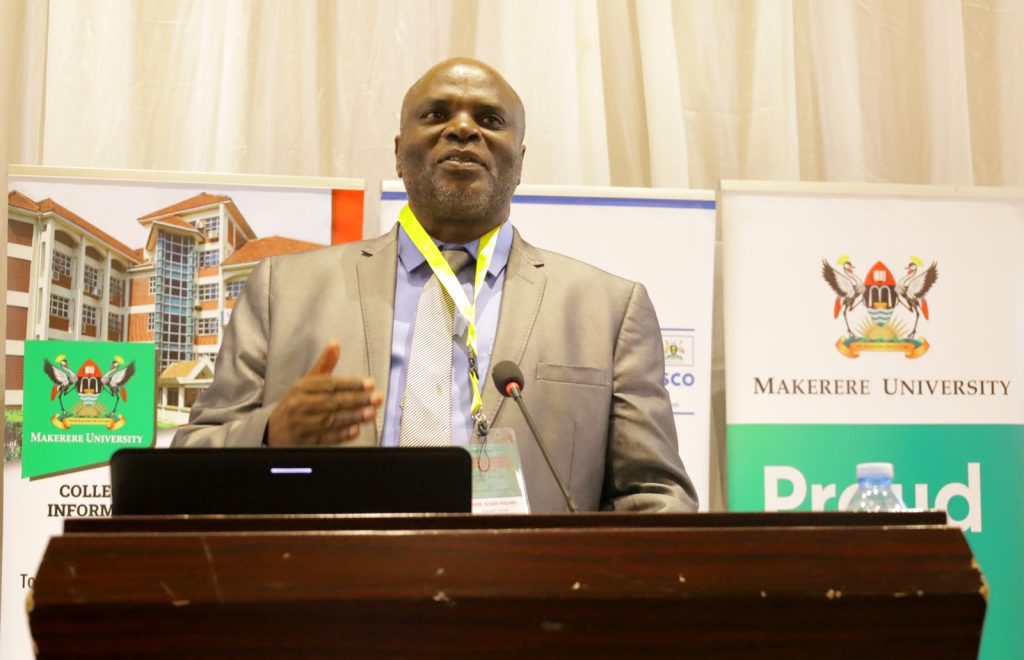
During the hybrid seminar, participants listened to a keynote address delivered virtually by Mr. Lothar Jordan, Chair of the UNESCO Memory of the World Programme Sub-Committee on Education and Research (SCEaR). Prof. Papa Momar Diop, who also doubles as President of African Regional Committee of Memory of the World (ARCMoW) and Dr. Lydia Waithira Muthuma also gave highlights of the Guide on Preventive Preservation Strategies.
Notable from the work done to date was the need to document Africa’s rich traditions, culture and norms that are largely passed on from generation to generation orally. “Many of us come from communities where the spoken word is the form of documenting knowledge and encapsulating heritage” explained Dr. Muthuma.
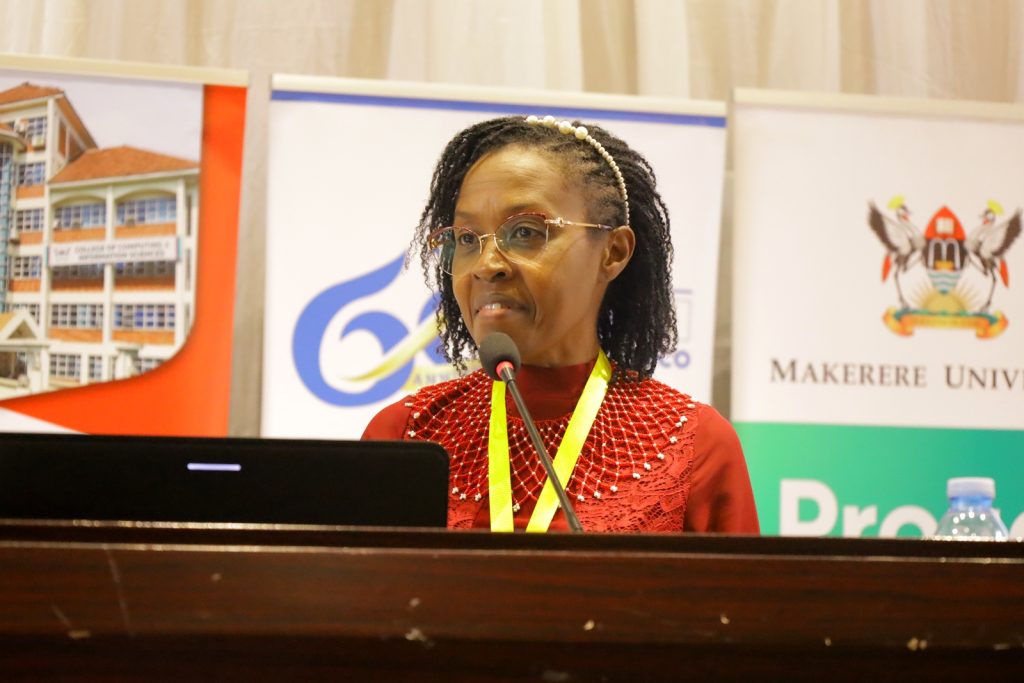
One of the recommendations of the guide under development is that ARCMoW’s stakeholders should come together and create a specific place for oral heritage, which is Africa’s living heritage. Citing examples such as traditional marriage ceremonies and decisions on where one ought to be buried in case of dispute e.g. the Kenyan Case of S. M. Otieno where customary law took precedence over common law, Dr. Muthuma said, “We have to be the ones to create a section or instrument in the Memory of the World where oral traditions are taken care of.”
So far, the guide contains chapters on; 1) Specific aspects of the region 2) Analysis and management of risks 3) How to involve the community 4) How to handle natural disasters 5) How to teach preventive conservation of documentary heritage and 6) Standards and handbooks on disaster prevention (ISO, ICA, IFLA, CCAAA, IASA etc.).
Prof. Magara equally shared the ten loss factors he is contributing to documenting in the guide namely; 1) Physical forces 2) Theft and vandalism 3) Fire 4) Water 5) Biological dangers (insects, etc.) 6) Chemical dangers 7) Light 8) Temperature 9) Humidity and 10) Loss of information due to obsolete equipment.
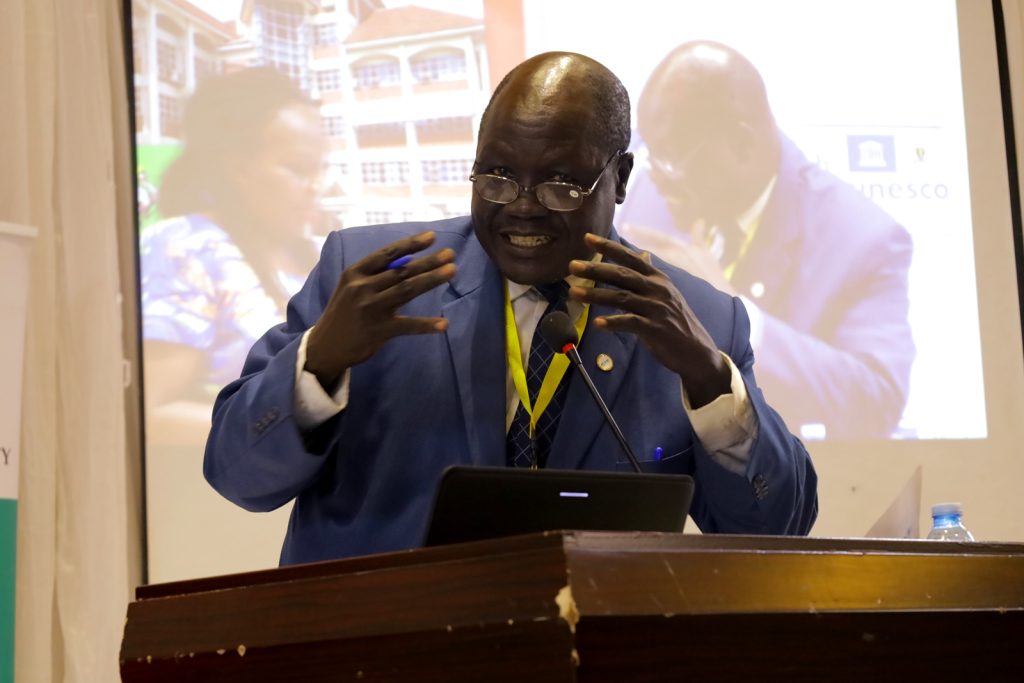
The seminar also featured a session on reflections chaired by Dr. Dominic Lali Mundrugo-Ogo, Assistant Secretary General, UNATCOM. Contributors to the session included Assoc. Prof. Ruth Nalumaga, the University Librarian, Makerere University and Mr. Adonia Katungisa, Director, National Library of Uganda (NLU). Additional contributions were from representatives of the; Uganda Library and Information Association (ULIA), Constorium of Uganda University Libraries (CUUL), Cross-Cultural Foundation Uganda, National Records Centre and Archives, Ministry of Public Service, Library and Information Services, Parliament of Uganda, Uganda Broadcasting Corporation and Academia, among others.
Dr. Mundrugo-Ogo thanked panelists and participants for contributing to the discussions, noting that a lot of ground had been covered in line with the seminar theme. “We need to document our African cultural values, rituals and practices. It is a challenge for all of us to work in that direction.”
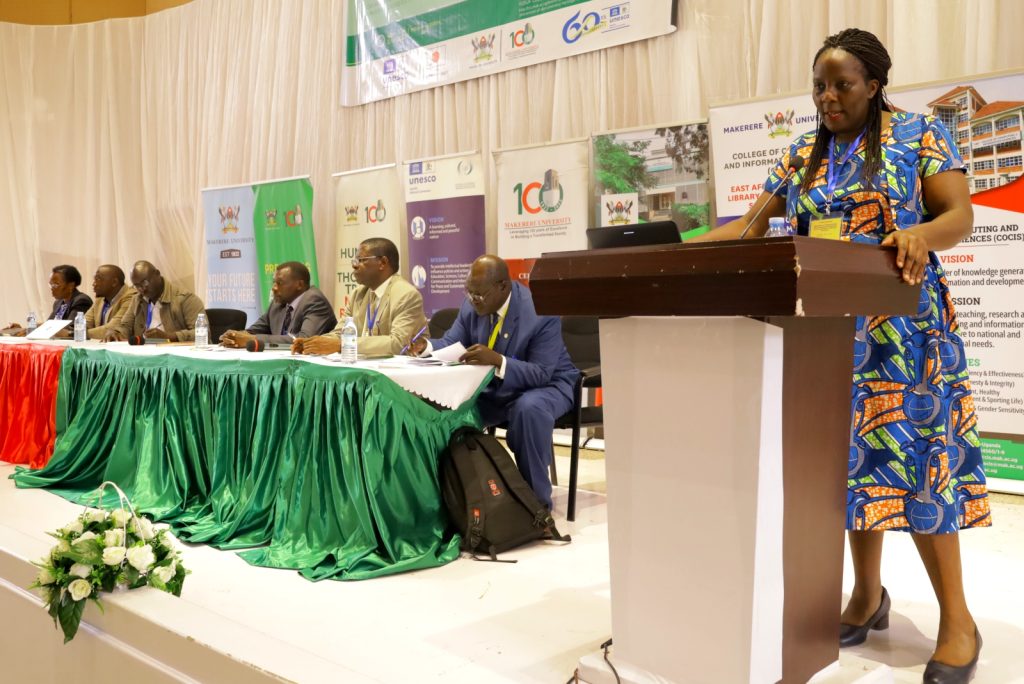
He challenged representatives of institutions present to each nominate of what entries ought to be included in the national register for consideration by National Committee of the Memory of the World. “Today’s meeting will be fruitful if henceforth, we start receiving proposals coming forward to form the basis for the national committee to act.”
Delivering the closing remarks on Day One, the Principal CoCIS, Prof. Tonny Oyana on behalf of the Vice Chancellor and Makerere University thanked UNESCO represented by Ms. Misako, SCEaR-WGA, UNATCOM and all participants for contributions to the efforts to preserve Africa’s Documentary Heritage. He reassured the stakeholders that despite the risk posed lack of documentation to the preservation of oral African knowledge, technology through various platforms offers a lifeline to not only embark on but also accelerate these efforts.
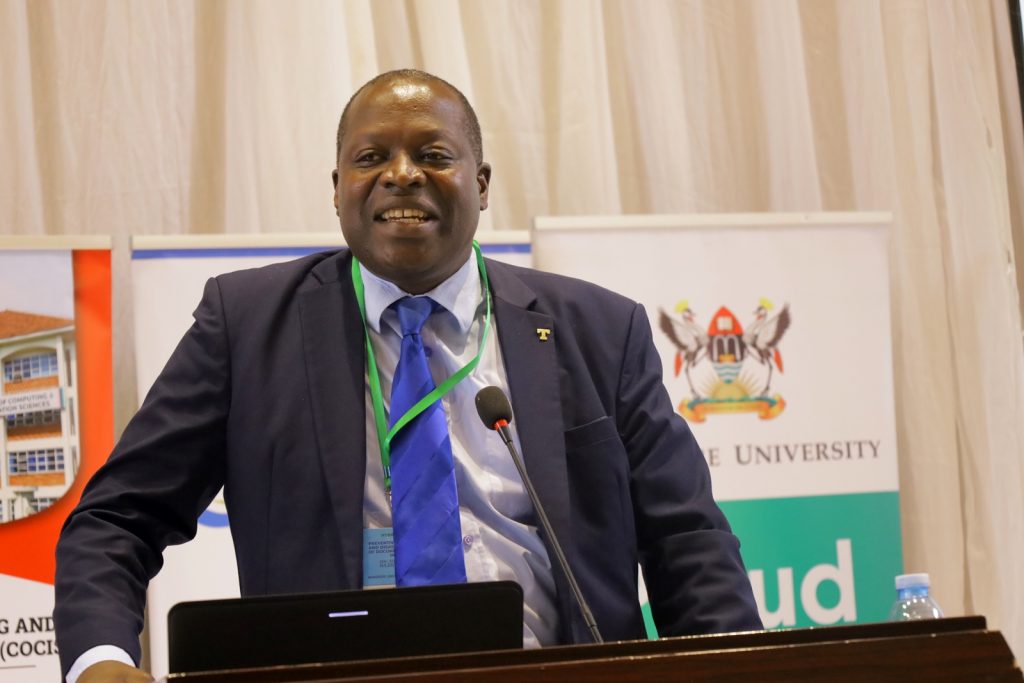
“I want to reassure all of you that we have new resources that we need to look to such as YouTube. We need to rewrite these literary elements or adopt oral documentation and we have the technology to help us document this knowledge” he said.
Prof. Oyana shared that the Makerere University Strategic Plan aspires to make the institution more research-led, with a research agenda that lays emphasis on community engagement, and commended the organisers on a job well done in this regard. “Your work Prof. Magara is well aligned to our research agenda and creating visibility for the University.”
Day One of the Seminar was moderated by the Principal Public Relations Officer, Ms. Ritah Namisango. Additional recommendations from Day One included the need to boost the Bachelor of Cultural Heritage Studies developed by the Cross-Cultural Foundation of Uganda, with support from UNESCO’s ICH Fund to cater for Masters and PhD level studies. The programme is currently offered at Uganda Martyrs’ University, Kabale University, Kyambogo University, and the Islamic University in Uganda.
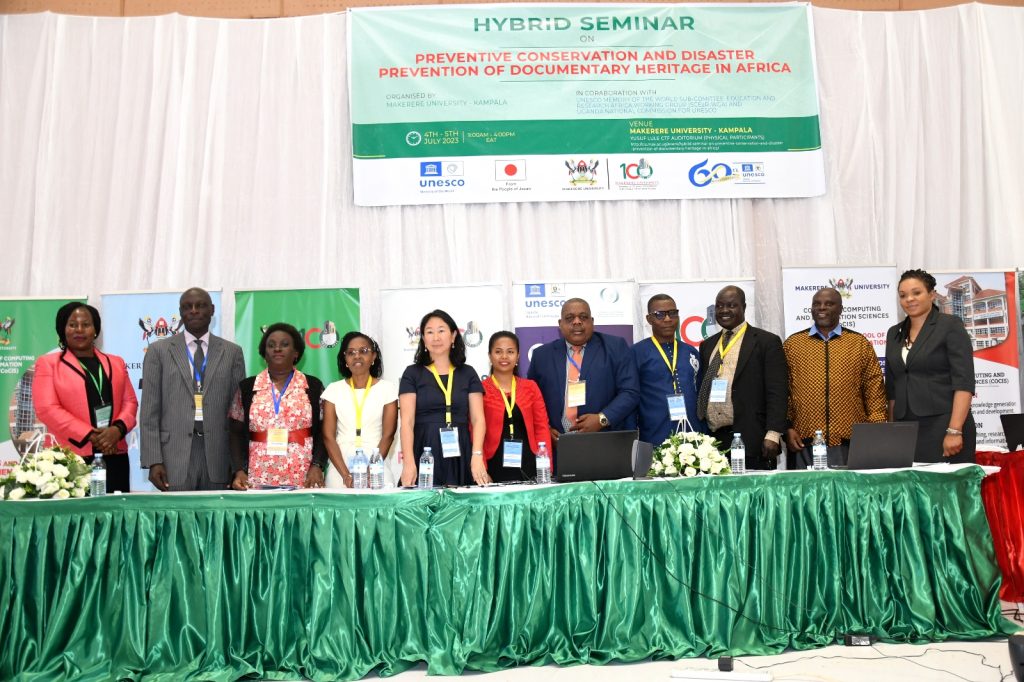
Day Two of the Seminar was dedicated to the ARCMoW Business Meeting and MoW workshop.
You may like
-


Over 9,200 to graduate at Makerere University’s 76th Graduation
-


76th Graduation Highlights
-


Meet Najjuka Whitney, The Girl Who Missed Law and Found Her Voice
-


Makerere University School of Public Health Graduates First Cohort of Cost-Effectiveness Analysis Short Course
-
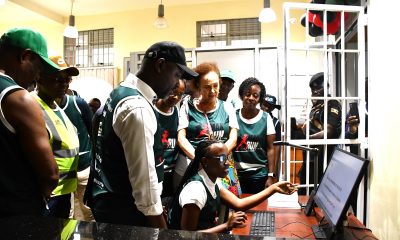

Students empowered to thrive through the Semester
-


Climate variability found to shape malaria trends in Yumbe District
General
Over 9,200 to graduate at Makerere University’s 76th Graduation
Published
4 hours agoon
February 24, 2026
Pomp and colour defined the opening day of the Makerere University’s 76th Graduation Ceremony as thousands gathered to celebrate academic excellence and new beginnings.
The historic ceremony has brought together scholars, families, friends and industry partners in a vibrant celebration of achievement and possibility. Throughout the four-day event, the University will confer degrees and award diplomas to 9,295 graduands in recognition of their dedication and hard work.
Among the graduates, 213 will receive Doctor of Philosophy (PhD) degrees, 2,503 will graduate with Master’s degrees, and 6,343 will earn Bachelor’s degrees. In addition, 206 students will graduate with postgraduate diplomas, while 30 will be awarded undergraduate diplomas.
Of the total number of graduands, 4,262 are female and 5,033 are male. According to Vice Chancellor, this marks the first time in 15 years that male graduands have outnumbered their female counterparts.
The best overall graduand in the Sciences, Esther Ziribaggwa, graduated on the opening day with the Bachelor of Agricultural and Rural Innovation and an impressive Cumulative Grade Point Average (CGPA) of 4.77.

The ceremony marks a proud moment for Makerere University as it continues to nurture top-tier professionals across diverse fields.
While presiding over the graduation, the State Minister for Primary Education, Hon. Dr. Joyce Moriku Kaducu, on behalf of the First Lady and Minister of Education and Sports, Hon. Janet Kataaha Museveni, pointed out that Makerere University is a model institution, where leaders are nurtured, scholars are sharpened, and where dreams have been given direction.
In her address, Hon. Museveni, highlighted Government’s deliberate investment in research, innovation, and infrastructure to strengthen higher education in Uganda.
“The establishment of the Makerere University Research and Innovation Fund (RIF), supports high-impact research and innovation that directly contributes to national priorities and development. Through this initiative, thousands of researchers and innovators have pursued practical, scalable solutions that are transforming communities and key sectors across Uganda,” Mrs Museveni, said.
The Minister also noted that Parliament’s approved a USD 162 million concessional loan to upgrade science, technology, and innovation infrastructure at Makerere University. The funding will facilitate the construction of modern laboratories, smart classrooms, and state-of-the-art facilities for Engineering and Health Sciences, investments expected to position the University firmly within the Fourth Industrial Revolution.
“Government has embarked on the construction of a National Stadium at Makerere University and other institutions of higher learning across the country. This will promote physical education, strengthen talent identification, and boost investment in the sports sector,”

Turning to the graduands, the Minister encouraged them to see themselves not merely as job seekers, but as job creators and solution-makers.
Uganda and Africa need innovators who will modernize agriculture; engineers who will build quality infrastructure; healthcare professionals who will strengthen health systems; and educators who will inspire the next generation,” the Honourable Minister said.
She reminded graduates that they are entering a rapidly changing world shaped by Artificial Intelligence, climate change, and shifting global markets. To thrive, she advised them to remain adaptable, creative, and committed to lifelong learning.
She also encouraged graduates interested in entrepreneurship to tap into the Government’s Parish Development Model, which provides community-based financing and production support.
Quoting Proverbs 3:5–6, the Minister urged the graduates to trust in God as they embark on their next chapter.
She extended special appreciation to the Mastercard Foundation for its 13-year partnership with Makerere University in expanding access to education and empowering young people in Uganda and beyond.
In his speech, the Chancellor of Makerere University, Dr Crispus Kiyonga, urged graduands to harness research, innovation and technology to drive Uganda’s transformation.

“This is a milestone in your lives. You have invested time, discipline and hard work to attain these qualifications. It is important that you derive value from this achievement, not only for yourselves, but for your families and for society.” Dr Kiyonga, said.
Dr. Kiyonga expressed gratitude to the Government of Uganda for its continued financial support to the University, particularly the funding allocated under MakRIF, which he described as critical in strengthening the institution’s research capacity.
“Research plays a very vital role in the development of any community. Makerere as the oldest University in the country is doing a significant amount of research, However, more work is required to mobilize additional resources to further strengthen research at the University.” Dr Kiyonga, noted.
Acknowledging the challenges of a competitive job market, Dr. Kiyonga encouraged graduates to think beyond traditional employment pathways.
“It is true that the job market may not absorb all of you immediately. But the knowledge you have acquired is empowering. You can create work for yourselves, individually or in teams.” Dr Kiyonga, said.
He advised the graduands to embrace discipline, integrity and adaptability in the workplace, and to take advantage of technology and digital platforms to innovate and respond to societal challenges.
“Every development challenge presents an opportunity. Believe that you can apply your knowledge to create solutions with impact.” He said.
Addressing the congregation, the Vice Chancellor, Prof Barnabas Nawangwe, congratulated the graduands, particularly staff and societal leaders on their respective achievements.

“I congratulate all our graduands upon reaching this milestone. In a special way I congratulate the members of staff, Ministers, and Members of Parliament that are graduating today as well as children and spouses of members of staff,” Prof Nawangwe, said.
In his speech, Prof Nawangwe, recognized outstanding PhD students, particularly members of staff. who completed their PhDs in record time without even taking leave from their duties.
He called upon graduates not to despise humble beginnings but rather reflect on the immense opportunities around them and rise to the occasion as entrepreneurs.
“You are all graduating with disciplines that are needed by society. We have equipped you with the knowledge and skills that will make you employable or create your own businesses and employ others. Do not despair if you cannot find employment. Instead, reflect on the immense opportunities around you and rise to the occasion as an entrepreneur,” Prof Nawangwe, said.
Prof Nawangwe called upon the graduands of PhDs to use their degrees to transform the African continent.
“As you leave the gates of Makerere I urge you to put to good use the knowledge you have received from one of the best universities in the World to improve yourselves, your families, your communities, your Country and humanity. Let people see you and know that you are a Makerere alumnus because of the way you carry yourself in society with dignity and integrity. Put your trust in God and honour your parents and opportunities will be opened for you,” Prof Nawangwe, said.
Delivering a key note address, Prof. Nicholas Ozor, the Executive Director of the African Technology Policy Studies Network Nairobi, Kenya ((ATPS). Reminded the graduates that a degree is not a finish line but the beginning of accountability. “The world is a complex, fast changing and deeply unequal. Degrees make you responsible for others not better than them,” Prof Ozor, said.

The 76th Graduation Ceremony of Makerere University will be held from Tuesday 24th to Friday 27th February, 2026. A total of 213 PhDs (87 female, 126 male), 2,503 Masters (1,087 female, 1,416 male), 206 Postgraduate Diplomas (80 female, 126 male), 6,343 Undergraduate Degrees (2,999 female, 3,344 male), and 30 Undergraduate Diplomas (9 female, 21 male) will be graduating from all the Colleges.
Ms. Sarah Aloyo and Ms. Nakato Dorothy both students of the Bachelor of Procurement and Supply Chain Management emerged as the best in the Humanities and Best Overall students with a CGPA of 4.93. Mr. Ssewalu Abdul, a Bachelor of Leisure and Hospitality Management student emerged second best in the Humanities with a CGPA 4.90. Ms. Esther Ziribaggwa emerged as the best student in the Sciences with a CGPA of 4.77 in the Bachelor of Agricultural and Rural Innovation, while Mr. Simon Mungudit emerged second best in the Sciences with a CGPA of 4.76 in the Bachelor of Science in Petroleum Geoscience and Production.
Commencement Speakers
- Day 1 – Prof. Nicholas Ozor, the Executive Director of the African Technology Policy Studies Network, Nairobi, Kenya
- Day 2 – Prof. Dr. Maggie Kigozi, Chairperson Makerere University Endowment Fund Board
- Day 3 – Dr. Patricia Adongo Ojangole, Managing Director, Uganda Development Bank Limited
- Day 4 – Ms. Reeta Roy, Former President & Chief Executive Officer, Mastercard Foundation
The 76th Graduation Ceremony will be held at the Freedom Square following the schedule below:
Tuesday, 24th February, 2026
College of Agricultural and Environmental Sciences (CAES)
College of Computing and Information Sciences (CoCIS)
College of Education and External Studies (CEES)
School of Law (SoL)
Livestream Link for Day 1: https://youtube.com/live/wVGPA0FJ9pU
Wednesday, 25th February, 2026
College of Health Sciences (CHS)
College of Natural Sciences (CoNAS)
College of Veterinary Medicine, Animal Resources and Bio-security (CoVAB)
School of Public Health (SPH)
Thursday, 26th February, 2026
Makerere University Business School (MUBS)
College of Business and Management Sciences (CoBAMS)
Friday, 27th February, 2026
College of Engineering, Design, Art and Technology (CEDAT)
College of Humanities and Social Sciences (CHUSS)
Institute of Gender and Development Studies (IGDS)
Makerere Institute of Social Research (MISR)
General
Mak Selected to Host Alliance for African Partnership Africa Office
Published
1 day agoon
February 23, 2026
Makerere University has been selected to host the Africa Office of the Alliance for African Partnership (AAP). The significant milestone that underscores Makerere’s role in fostering research, innovation, and global collaborations across the continent was announced at a meeting of the University’s Central Management with an AAP delegation on 23rd February 2026.
Makerere’s selection was based on the University’s robust commitment, alignment with the AAP’s Strategic Plan, and proven ability to manage consortium activities. The AAP, which was initiated by Michigan State University (MSU) in collaboration with Ten African Universities and agricultural policy research networks in 2016, targets critical challenges in education, youth empowerment, health and nutrition, agri-food systems, science and technology, water, energy, environment, and culture and society.
Addressing the delegation consisting of AAP Co-Directors from MSU, Dr. Jose Jackson-Malete and Dr. Amy Jamison, accompanied by newly-appointed Director of the AAP Africa Office, Dr. Racheal Ddungu Mugabi and Ms. Clare Cheromoi, the Vice Chancellor, Prof. Barnabas Nawangwe who appreciated the choice of Makerere to host the Africa Office said:
“One of the greatest challenges facing African universities is PhD training, particularly supervisory capacity. Through partnerships such as the Alliance for African Partnership we can leverage international expertise to strengthen supervision—whether through training supervisors or through joint supervision arrangements.”
Prof. Nawangwe equally applauded joint initiatives such as the Grant Writing and Publication project, which gave rise to the establishment of a Writing Centre that he said can be used to build capacity in AAP member universities with Makerere as the hub. Officially launched on 21st March 2023, the project is living up to its expectation of becoming a springboard for strong postdoctoral collaborative research for both institutions and other US universities.
Dr. Titus Awokuse, Vice Provost and Dean for International Studies and Programs at Michigan State University (MSU) who attended virtually, reiterated that Makerere’s selection reflects its long-standing commitment to advancing African higher education, research excellence, and meaningful global collaboration.
Reflecting on the origins of the Alliance for African Partnerships (AAP), Dr. Awokuse explained that nearly a decade ago, MSU initiated a transformative conversation in Atlanta centered on the question: How should we partner differently? From this dialogue emerged AAP—an Africa-centered consortium that now brings together 12 institutions across Africa and the United States.

He emphasized that AAP is grounded in equity, mutual benefit, shared leadership, and deep respect for African priorities and expertise. Since its founding, MSU has served as convener and key supporter, working with member institutions to strengthen research collaboration, promote faculty and student engagement, and address shared development priorities.
Dr. Awokuse underscored that AAP’s success is the result of collective vision and commitment, not the efforts of a single institution. He paid tribute to Lilongwe University of Agriculture and Natural Resources for hosting the Africa Office in its early years and acknowledged the foundational leadership of the inaugural Africa Office Director.
He described the launch of the Africa Office at Makerere University as a significant milestone that reinforces Africa-led leadership, strengthens regional collaboration, and enhances responsiveness to emerging opportunities. MSU, he affirmed, remains fully committed to AAP and to working closely with Makerere and all consortium partners to expand collaborative research, nurture the next generation of scholars, and advance Africa-led solutions to global challenges.
The newly-appointed AAP Africa Office Director, Dr. Racheal Ddungu Mugabi is a member of faculty in the Department of Development Studies, Institute of Gender and Development Studies. Her work on intersectional inequalities in Uganda and other Global South regions uniquely positions her to drive collaborative research and partnerships at the Africa Office.
Initially founded by ten African Universities and MSU, AAP now comprises eleven African members including; the African Network of Agricultural Policy Institutes (ANAPRI)-Zambia, Egerton University-Kenya, Lilongwe University of Agriculture and Natural Resources (LUANAR)-Malawi, Makerere University-Uganda, United States International University-Africa-Kenya, Universite Cheikh Anta Diop-Senegal, Universite Yambo Ouologuem de Bamako-Mali, University of Botswana-Botswana, University of Dar es Salaam-Tanzania, University of Nigeria, Nsukka-Nigeria, and the latest, University of Pretoria-South Africa.
These Universites collaborate under Focal Points to advance policy-relevant research and sustainable development. Makerere University’s Focal Point is Prof. Robert Wamala, Director of Research, Innovations and Partnerships (DRIP).
Addressing the University Management, Dr. Jackson-Malete outlined the African Futures Research Leadership Program, which nurtures early career scholars through mentorship and skill-building as one of AAP’s flagship programs. She noted that the Program that prioritizes female participants or men committed to promoting women in higher education has for the first time during its fifth cohort admitted the first male, Dr. Alfadaniels Mabingo from the Department of Performing Arts and Film, Makerere University.
The AAP Africa Office at Makerere will coordinate activities, boost research collaboration, mobilize resources, and enhance global engagements for socio-economic transformation. This aligns with Makerere‘s broader goals of leveraging international expertise to build resilient institutions.
View more photos from the event: https://flic.kr/s/aHBqjCLjoA
Trending
-

 Humanities & Social Sciences2 days ago
Humanities & Social Sciences2 days agoMeet Najjuka Whitney, The Girl Who Missed Law and Found Her Voice
-

 Health6 days ago
Health6 days agoUganda has until 2030 to end Open Defecation as Ntaro’s PhD Examines Kabale’s Progress
-

 Agriculture & Environment5 days ago
Agriculture & Environment5 days agoUganda Martyrs Namugongo Students Turn Organic Waste into Soap in an Innovative School Project on Sustainable Waste Management
-

 General6 days ago
General6 days agoMastercard Foundation Scholars embrace and honour their rich cultural diversity
-

 Health2 weeks ago
Health2 weeks agoCall for Applications: Short Course in Molecular Diagnostics March 2026
